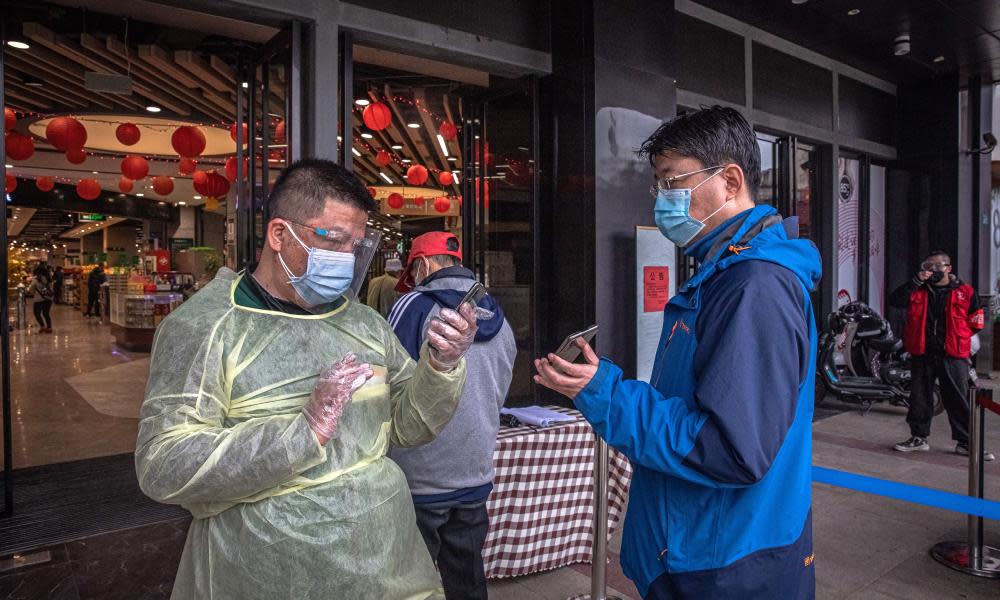China's coronavirus health code apps raise concerns over privacy

As millions of people in China emerge from weeks of lockdown, their freedom of movement is largely dependent on phone apps.
The “health code” service – run on the ubiquitous platforms Alipay and WeChat and developed for the Chinese government – give users colour-coded designations based on their health status and travel history, and a QR code that can be scanned by authorities.
The apps are specific to each city or province, but generally people given a green code are allowed to travel relatively freely. A yellow code indicates that the holder should be in home isolation, and a red code says the user is a confirmed Covid-19 patient and should be in quarantine.
The apps have become an integral part of Chinese authorities’ management of people and their movements in and out of affected areas. When lockdown restrictions in Hubei province were lifted last week, the government allowed residents with a green code to travel within and out of the province.
Related: China gets mixed results in its attempt to lift lockdown
Some restaurants, shops, hotels and other establishments ask for patrons to show their codes before entering. In Wuhan, only those with a green health code are allowed to take public transport.
However, the technology has raised concerns about their reach into people’s private lives and data.
There have been complaints by Chinese social media users about a lack of transparency over how the app works and what data it is storing. Some have reported being unable to change erroneous “red” designations, and questioned the reliance on internet connection and surveillance.
“Why should you let companies such as Alipay and WeChat monitor and trace you with the health code?” said one user.
“Can’t it be integrated into the chip of our ID card? And some people’s mobile phones are not connected to the internet. I don’t know what leaders are thinking?”
The apps rely on a combination of self-reporting by the user and government information, including a person’s medical records, their travel history and if they have been in contact with someone diagnosed with Covid-19.
According to screenshots of an English-language version of the Alipay app, applicants are asked for contact and passport details and recent travel, and for relevant medical certification. Ant Financial, an affiliate of Alibaba that operates Alipay, said that it does not provide or operate the service and has no access to the data entered into it. The company said it provided technical support to the Hangzhou city government when it was developing its version of the software.
Official guidelines for the WeChat app say it takes basic identity and address details as well as “the history of close contact with suspected patients, history of travel and residence outside the resident”.
It draws on medical information including “symptoms (such as fever, cough), medical treatment, isolated observation, contact information, travel history of the epidemic area”, and the user’s travel history including the mode of travel and what seat they sat in, and details on the vehicle and its driver.
The health code app, launched in Hangzhou in early February, and described by state media as “Alipay Health code” spread to more than 100 cities within a week before it was rolled out nationally.
Additional reporting by Pei Lin Wu.


